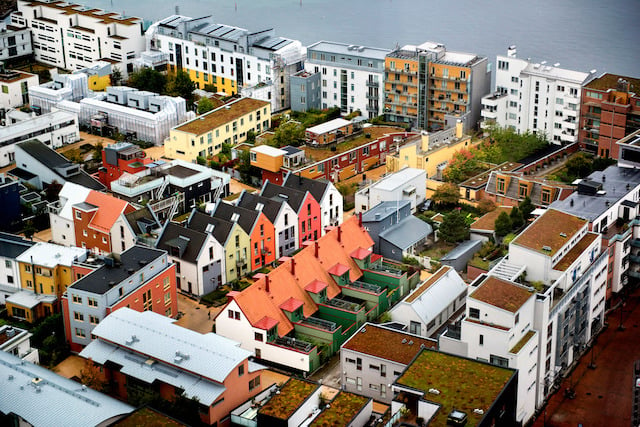Honorary doctor at Malmö University, Hampus Jakobsson is a big name in the Swedish start-up scene. After co-founding a business that was sold to Blackberry for millions, he has invested in over eighty companies and runs several start-up incubators in Malmö. When it comes to entrepreneurship, he says, Malmö is where it’s at.
“Being close to the wharf, Malmö was never a trade city — it was where things got built. That means people here got really good at getting things done. This left-leaning way of looking at workers and sharing wealth, combined a tradition of flat hierarchies and the spirit of collaboration, is key to Malmö’s success.
Learn more about studying at Malmö University
“The thing I love about Malmö is that if you say ‘I want to try this, I want to see if this works’, people say, ‘Why are you talking about it? Let’s just do it’. The focus is less on making money and more on experimentation and creativity.”
Jakobsson is all about experimentation. With an ever-expanding list of interests ranging from artificial intelligence to moral philosophy to gut biome, he gives off the impression that there is no time to lose.
“I am a strong believer in running experiments and think that the only way to solve problems is to just try. That’s why universities have amazing value. Universities are like playgrounds where testing things out is part of your tenure — there’s a great freedom in that.”
What’s more, he says, getting out of your comfort zone is a great way to get rid of complacency.
 Photo: Malmö University
Photo: Malmö University
“I encourage everyone to stay curious and for god’s sake never become complacent. I think the best way to do that is to travel, engage with the community and broaden your horizons. Choosing to go get an education elsewhere means you are motivated and ambitious — it shows that you fought for what you wanted. That’s also one of the reasons why I am always interested in hiring expats.”
Jakobsson himself was recently awarded an honorary doctorate at Malmö University, and also collaborates with Drivhuset, the University’s centre for student innovation. Kim Gerlach, one of Drivhuset’s business developers, says that Malmö’s “thriving start-up ecosystem” is one of the reasons that she decided to study and stay in the city.
“After graduating from the master’s programme in Leadership for Sustainability, I landed this job helping students to kick-start their ideas. I wanted to stay in Malmö because of the focus on social innovation — entrepreneurship that helps solve social problems. The idea of social innovation and sustainability is understood here in a way that I don’t experience elsewhere.
Learn more about studying at Malmö University
“At Drivhuset we offer Malmö University students tools like one-to-one coaching, workshops, and the chance to share ideas with like-minded people. There is a supportive network in Malmö and we see that students really value this sense of community. Even if you’re not interested in creating the next billion-dollar start-up, I think entrepreneurial skillsets like problem solving and self-reflection are thinking patterns that help you develop as a person.”
Like Jakobsson, she says it’s all about taking the plunge.
“My advice to students is to have confidence that their idea is valid and not just a dream. Even if it’s just a seed, that’s where it starts. By working on it together we can make it grow.”
Want to be your own boss? Want to learn more about innovation and social change? Malmö offers English-taught master’s programmes in Interaction Design, Leadership for Sustainability, Computer Science and Media Technology, among others. Find a full list of programmes and courses here.
This article is sponsored by Malmö University



 Please whitelist us to continue reading.
Please whitelist us to continue reading.